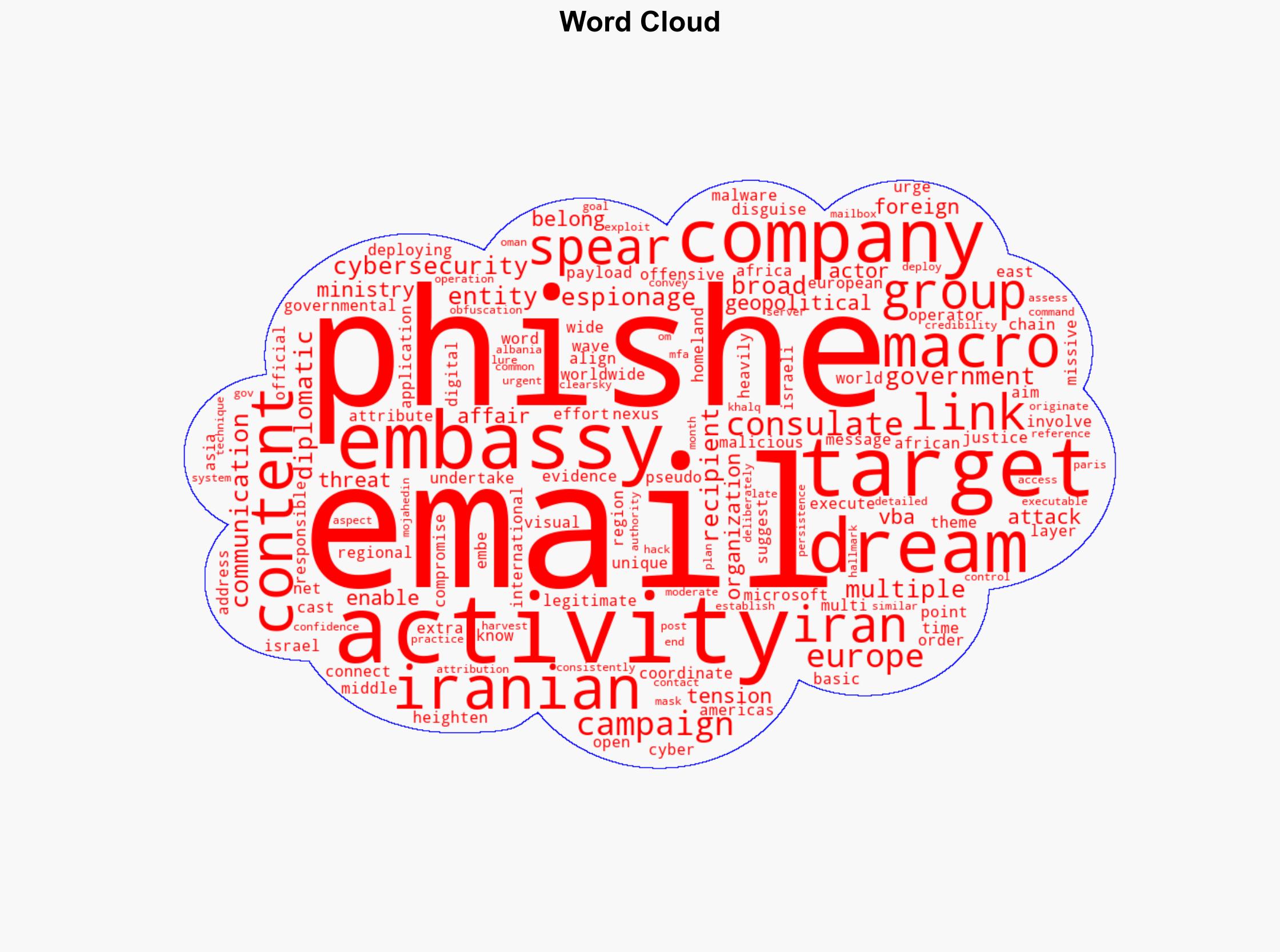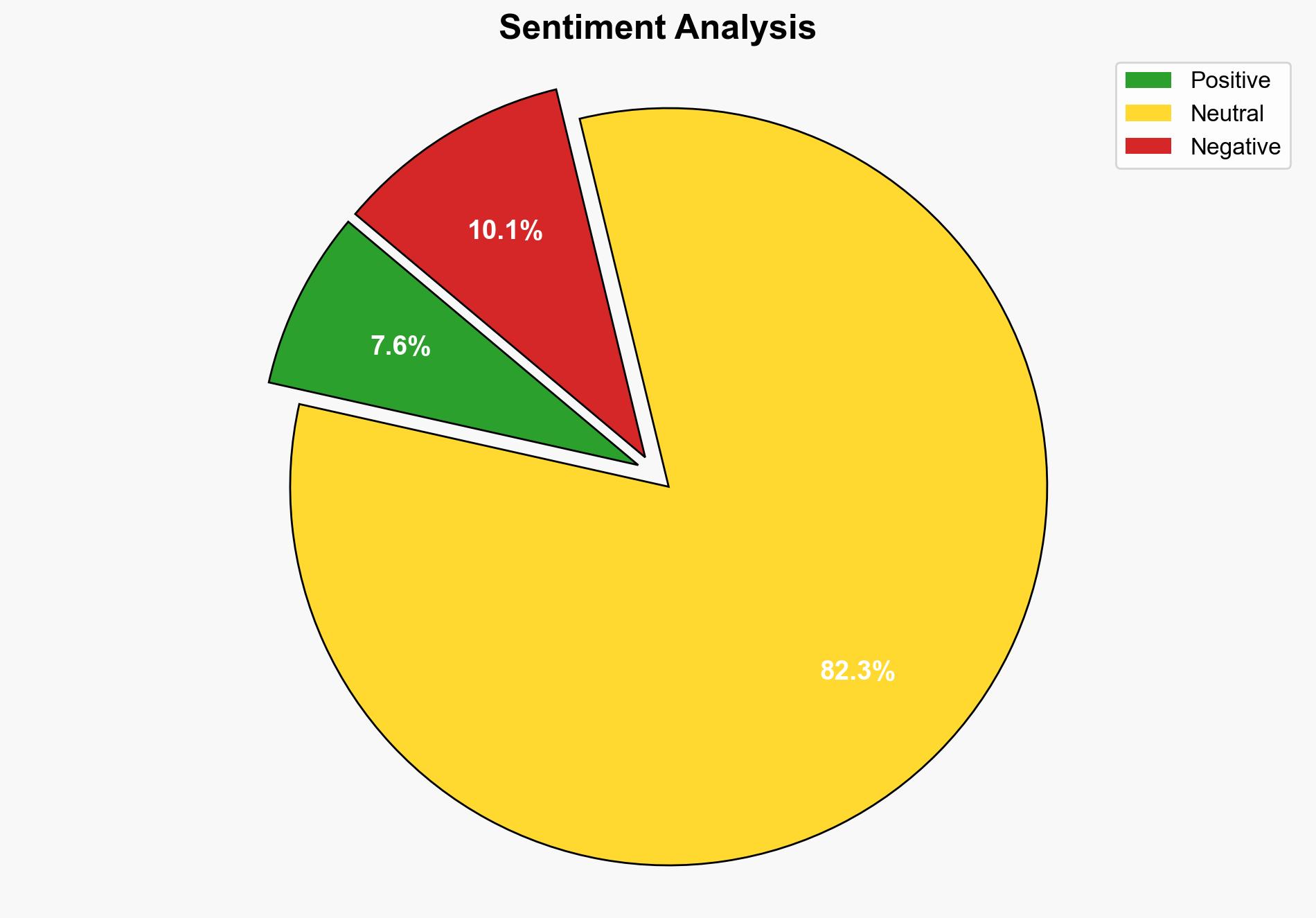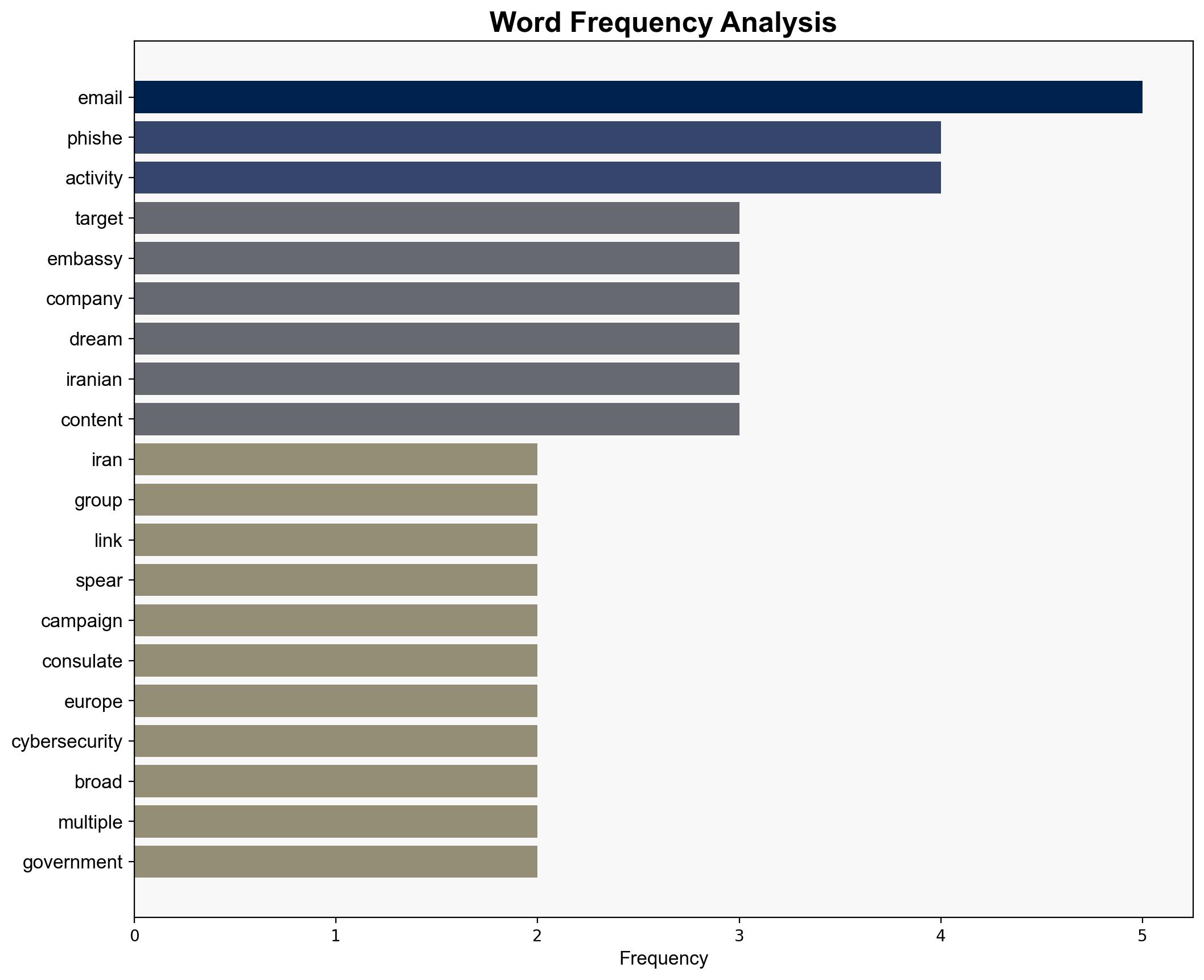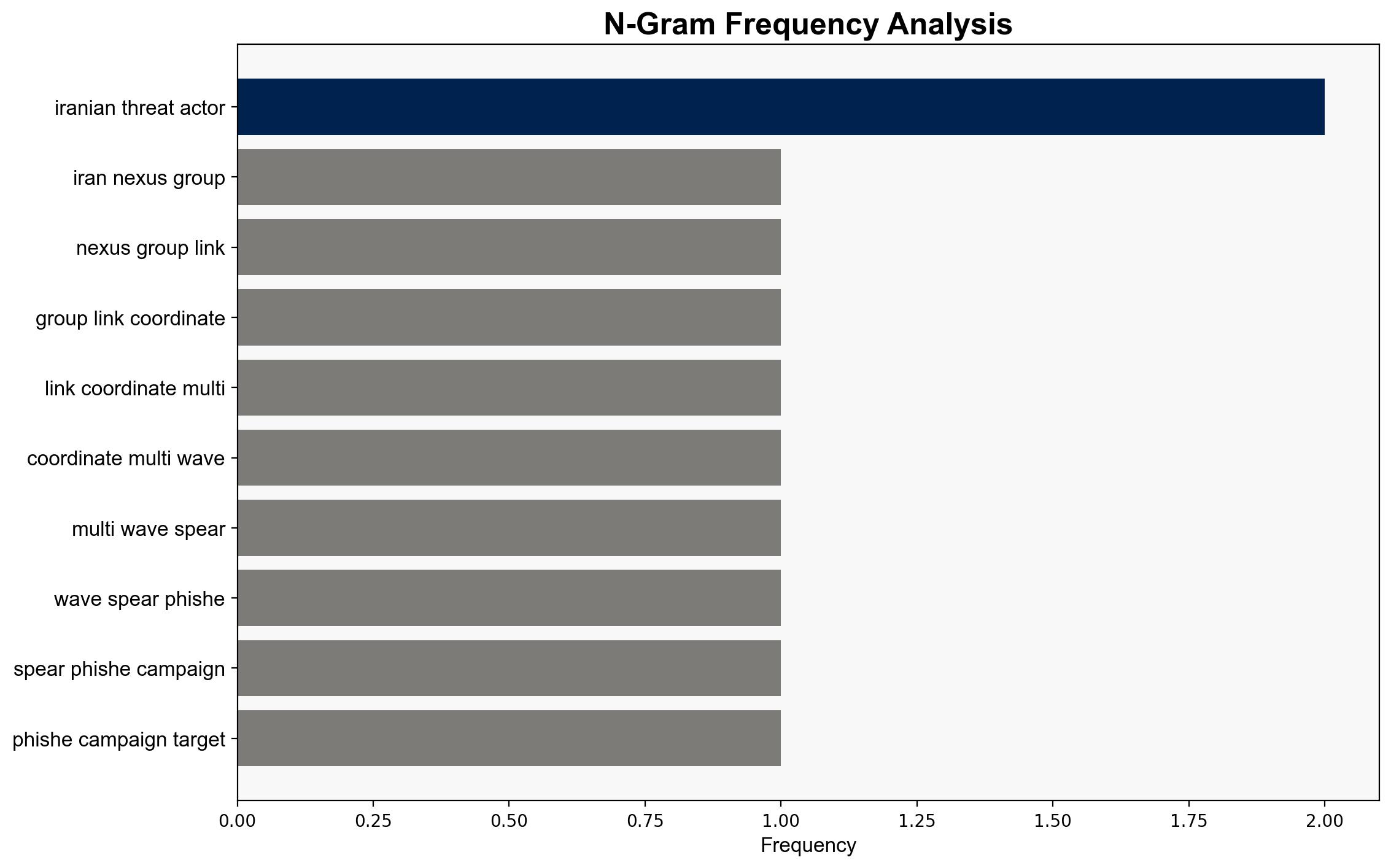Iranian Hackers Exploit 100 Embassy Email Accounts in Global Phishing Targeting Diplomats – Internet
Published on: 2025-09-03
Intelligence Report: Iranian Hackers Exploit 100 Embassy Email Accounts in Global Phishing Targeting Diplomats – Internet
1. BLUF (Bottom Line Up Front)
The most supported hypothesis is that the Iranian nexus group is conducting a coordinated cyber-espionage campaign targeting diplomatic entities to gather intelligence amid heightened geopolitical tensions. Confidence level: High. Recommended action: Enhance cybersecurity measures across diplomatic channels and increase intelligence sharing among affected nations.
2. Competing Hypotheses
Hypothesis 1: The Iranian nexus group is executing a state-sponsored cyber-espionage campaign aimed at gathering intelligence from diplomatic entities to leverage in geopolitical negotiations and conflicts. This is supported by the sophisticated nature of the phishing attacks, the targeting of multiple regions, and the use of legitimate-looking communications to exploit trust.
Hypothesis 2: The cyber-attacks are conducted by a non-state actor or a proxy group with financial motivations, using the guise of Iranian state-sponsored activity to mask their true intentions. This hypothesis considers the possibility of false flag operations and the financial gain from selling sensitive information.
3. Key Assumptions and Red Flags
– Assumptions for Hypothesis 1 include the belief in the capability and intent of Iranian state actors to conduct such operations, and the attribution of the campaign to Iran based on cybersecurity company assessments.
– Assumptions for Hypothesis 2 involve the potential for misattribution and the existence of financially motivated non-state actors capable of similar operations.
– Red flags include the reliance on cybersecurity company reports, which may have biases or incomplete data, and the lack of direct evidence linking the attacks to the Iranian government.
4. Implications and Strategic Risks
The campaign suggests a significant threat to diplomatic communications and international relations, potentially leading to escalated tensions between Iran and targeted nations. The widespread nature of the attacks indicates a high risk of sensitive information being compromised, affecting geopolitical stability and diplomatic negotiations. Additionally, the possibility of false flag operations could mislead international responses and exacerbate regional conflicts.
5. Recommendations and Outlook
- Enhance cybersecurity protocols within diplomatic entities, emphasizing phishing awareness and email security.
- Foster international collaboration for intelligence sharing and coordinated responses to cyber threats.
- Scenario-based projections:
- Best Case: Strengthened cybersecurity measures prevent further data breaches, and diplomatic channels remain secure.
- Worst Case: Continued breaches lead to significant diplomatic fallout and increased geopolitical tensions.
- Most Likely: Ongoing cyber threats necessitate continuous vigilance and adaptation of security measures.
6. Key Individuals and Entities
– Iranian nexus group (no specific names identified)
– Dream (Israeli cybersecurity company)
– Clearsky (cybersecurity company providing detailed analysis)
7. Thematic Tags
national security threats, cybersecurity, counter-terrorism, regional focus





